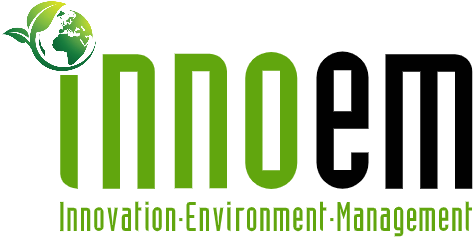An annual CDP report reveals a record number of corporations responded to requests for information on their environmental performance last year.

The march of climate-related disclosures into the corporate mainstream has chalked off another major milestone, with companies responsible for over half of global market capitalization providing environmental data to the CDP disclosure platform.
The influential investor-backed NGO published its annual progress report on organizations’ environmental disclosures, revealing that it smashed the record set last year. The group confirmed nearly 20,000 organizations have disclosed climate and environmental data through CDP in 2022 — a 38 percent increase on 2021.
Overall, over 18,700 businesses, including listed companies boasting $60.8 trillion of market capitalization, disclose data on climate change, deforestation and water security through CDP. They are joined by more than 1,100 cities, states and regions that also use the platform to report on their environmental performance.
The latest surge in disclosing organizations means there has now been a 233 percent increase in the number providing CDP with environmental information since the Paris Agreement was signed in 2015.
“This is a landmark year for environmental disclosure,” said Mercedes Tallo, chief stakeholder officer at CDP. “This is crucial because disclosure provides the impetus for action and the mechanism for accountability. There is unprecedented agreement among stakeholders that environmental disclosure is a necessity to measure and drive progress to show impact, and it clearly now sits at the top of boardroom agendas and government policy.”
Over 3,700 corporates are disclosing in the US and over 2,500 China-based companies reported through CDP last year.
The report further underscores how environmental disclosure is now a mainstream activity for corporates in many of the world’s largest markets and influential industries.
Over 3,700 corporates are disclosing in the U.S. and over 2,500 China-based companies reported through CDP last year. A further 1,700 corporates from Japan, 1,400 from the U.K. and 1,300 from Brazil complete the list of the top five disclosing countries on the platform. In terms of disclosure by corporate activity, the manufacturing sector led the way with over 7,490 disclosures, followed by services with 4,400, materials with 1,690, food, beverage and agriculture with over 1,000, and transportation services with over 930.
At the same time, pressure on listed companies to respond to information requests from CDP is also intensifying. In 2022, more than 680 financial institutions with over $130 trillion in assets under management backed information requests that were sent to nearly 10,400 companies calling on them to disclose environmental data through CDP. Similarly, over 280 major corporate purchasers with over $6.4 trillion in purchasing power requested environmental data from over 47,000 of their suppliers.
The big question is whether environmental disclosure is sufficiently embedded in the mainstream to provide governments with the confidence to make climate-related reporting a mandatory requirement for businesses.
Tallo said that mandatory reporting rules are “on the horizon” within the next three years in many major economies. Moreover, over 90 percent of the global economy is covered by national net zero goals and governments will be under pressure to get a better grip on environmental data if they are to deliver on their climate targets.
The Biden administration has instructed the SEC to develop more robust climate risk reporting rules and the EU is pursuing similar plans. The chaos engulfing the U.K. government has introduced a degree of uncertainty to its plans, but proposals are still in the pipeline for demanding new corporate climate reporting rules. Meanwhile, growing numbers of governments and investors are encouraging businesses to report on climate-related risks in line with the recommendations of the Taskforce on Climate-related Financial Disclosures.
A sizeable minority of the world’s largest 100 listed companies and a significant majority of the 100 largest privately held firms still do not have net zero goals in place.
However, this global trend has triggered something of a backlash. In the U.S., Republican politicians have launched a quixotic attempt to try to effectively ban Environmental, Social and Governance (ESG) reporting and investing. Some high profile investors have bemoaned the reporting requirements being placed on them, with recent reports suggesting a number of U.S. banks could quit various global alliances in support of the net zero transition in protest at the administrative burden it places on them and the potential risk of legal action if they fail to deliver on their climate pledges.
The result of this ideological and legislative tussle could have huge implications for the more that 29,500 companies with $24.2 trillion in market capitalization that are still failing to respond to CDP’s annual disclosure requests.
As a separate study from the Energy and Climate Intelligence Unit highlighted, for all the welcome progress made by companies setting net zero targets, a sizable minority of the world’s largest 100 listed companies and a significant majority of the 100 largest privately held firms still do not have net zero goals in place. Climate action is even less advanced among those businesses outside the top tier of the corporate world. And even where net zero targets are in place many businesses are struggling to translate their goals into credible decarbonization strategies.
Nearly 19,000 of the world’s largest companies may routinely report on their carbon emissions and environmental performance using a standardized approach, providing managers, regulators and investors with crucial information on the status of the net zero transition. But close to 30,000 of their generally slightly smaller peers are still failing to provide such information.
For its part, CDP is adamant the benefits of disclosing far outweigh any costs and are proven beyond doubt. “For more than 20 years, CDP has been driving change in how capital markets, businesses, cities and governments understand and tackle environmental issues,” said Tallo. “I am delighted to see disclosure becoming business-as-usual alongside the global movement towards mandatory disclosure. Governments, companies, cities, states and regions must move further and faster to keep up with this momentum. Urgent and transformative action is needed now.
“All corporations must embrace their responsibility to measure and manage their environmental impacts at speed and scale. The findings of the IPCC’s Sixth Assessment Report and extreme weather experienced globally in 2022 made shockingly clear that companies must prepare themselves for the impacts of climate change and show that they can adapt through resilient supply chains and business models.”
But while the risks are shockingly clear, thousands of businesses are continuing to ignore them. Will governments force them to provide investors, regulators and the public with information they need on how corporates are preparing for climate impacts and the net zero transition? Or will they continue to rely on a voluntary approach that is enjoying considerable success, but is still a long way short of the universal coverage that could help spark a step-change in the pace of the net zero transition?
Source:https://www.greenbiz.com/article/corporate-world-approaching-climate-disclosure-tipping-point

